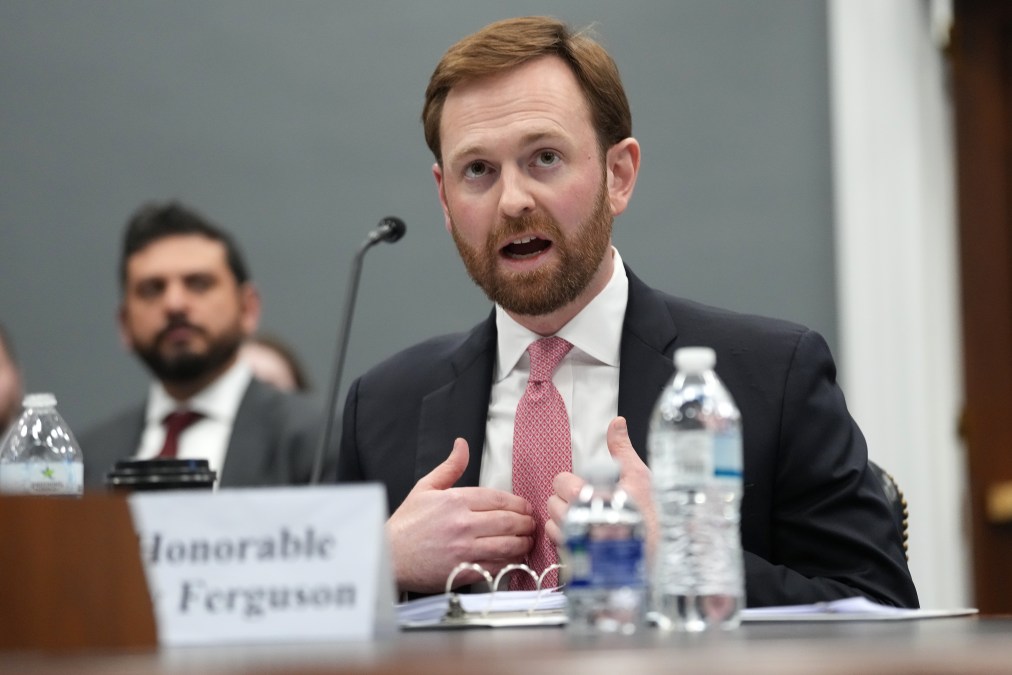FTC warns tech companies not to weaken encryption, free speech practices for foreign governments

Federal Trade Commission Chair Andrew Ferguson warned U.S. tech companies not to accede to laws in foreign countries that weaken Americans’ free speech or data privacy rights.
Specifically, Ferguson cited laws like the European Union’s Digital Service Act and the U.K.’s Online Safety Act as statutes that incentivize U.S. tech companies “to censor speech, including speech outside of Europe.” He said that could lead to heightened surveillance of Americans by foreign governments and increase their risk around identity theft and fraud.
“Companies might be censoring Americans in response to the laws, demands, or expected demands of foreign powers,” Ferguson wrote in letters to 13 different tech companies Thursday. “And the anti-encryption policies of foreign governments might be causing companies to weaken data security measures and other technological means for Americans to vindicate their right to anonymous and private speech.”
Additionally, as companies continue to face fragmented and balkanized internet laws across different countries, Ferguson worried that some companies may opt for maximally invasive or restrictive policies toward its users to stay in compliance with the strictest laws.
“I am also concerned that companies such as your own might attempt to simplify compliance with the laws, demands, or expected demands of foreign governments by censoring Americans or subjecting them to increased foreign surveillance even when the foreign government’s requests do not technically require that,” he wrote.
Ferguson sent the letters to executives at Akamai, Alphabet, Amazon, Apple, Cloudflare, Discord, GoDaddy, Meta, Microsoft, Signal, Snap, Slack and X.
He criticized the Biden administration for “actively” working to censor American speech online. The Supreme Court has largely upheld the constitutionality of the federal government’s conversations with tech companies under the Biden administration.
President Donald Trump has publicly attacked and pressured many of same companies Ferguson is targeting, in some cases threatening to use the power of the federal government to force them to adopt his preferred policies — not only on content moderation and disinformation, but also tariffs, diversity, equity and inclusion programs, unflattering search engine results and numerous other demands. Nevertheless, Ferguson praised Trump for allegedly putting “a swift end” to the weaponization of the federal government against Americans for their speech.
The FTC chair said in his letter that the agency is focused on the importance of offering strong end-to-end encryption to users, regardless of what laws or regulations in other countries may require.
“If a company promises consumers that it encrypts or otherwise keeps secure online communications but adopts weaker security due to the actions of a foreign government, such conduct may deceive consumers who rightfully expect effective security, not the increased susceptibility to breach or intercept desired by a foreign power,” Ferguson wrote.
The FTC’s letters were sent the same week that Director of National Intelligence Tulsi Gabbard announced the U.S. government had successfully engaged with U.K. leaders to drop their demand that Apple provide law enforcement with a means to access encrypted user cloud data for investigations, even for users outside the U.K.
The demand resulted in Apple withdrawing its Advanced Protection Program feature from U.K. iPhones and Apple computers, as privacy advocates continued to argue that any access given to law enforcement would fundamentally weaken the encryption that all its users rely on.






